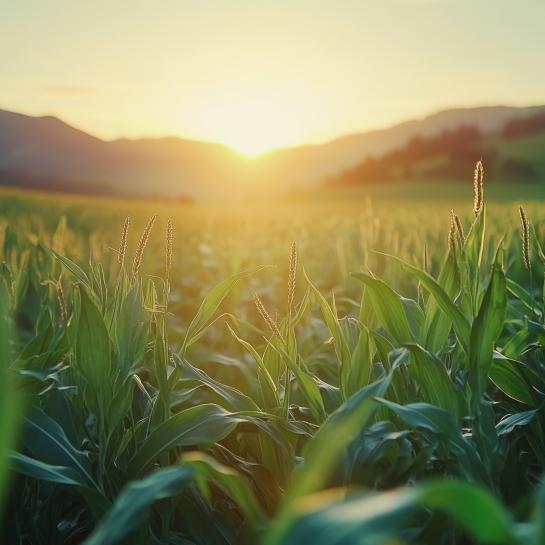
Acronym: STREAMING
Title: Sustainable Trade Regimes with Europe and Africa through Mapping Innovation, New-technology and Growth-mindset
| Call | HORIZON-CL6-2024-FARM2FORK-01 |
| EU nr | 101182256 |
| Period | 42 months – Start date 1.08.2025 |
| Project budget | € 4,447,461.25 |
| VUB budget | € 181,450.00 |
| Contact | Prof. Frits Heinrich |
Can you provide a brief overview of the STREAMING project and its primary objectives?
STREAMING is a four-year multidisciplinary and transnational project that aims to develop strategies for fair, healthy, and environmentally sustainable food systems across Europe and Africa. By fostering connections between basic research and practical implementation, STREAMING seeks to promote innovation and entrepreneurship among various target groups, including women, researchers, students, and farmers. The project aims to bridge academia-industry gaps and promote the adoption of sustainable practices and technologies in African food trade systems, with an additional focus on policy analysis and recommendations. Furthermore, the project aims to inform trade policies in Africa and Europe, with an emphasis on removing non-tariff barriers to trade and enhancing resilience against external challenges such as climate change, by integrating stakeholder perspectives, empirical research, and innovative solutions.
How will STREAMING bridge the gap between academia and industry in Africa?
With respect to the ‘innovation’ pillar/aspect of STREAMING, a key element is developing training material and providing coaching for women, farmers, and startups as well as offering open access online courses for the general population to encourage and support business ideas and facilitate knowledge transfer of innovations in the agrifood sector; such information will also be made available through digital platforms. The project will furthermore establish networks among all food system actors from the different partner countries and implement joint innovation hubs in Africa and Europe to stimulate academia-industry (/actor) interactions. The project will also fund a number of external/third party start-ups that want to test and develop new innovation concepts into viable businesses.
With respect to the ‘trade barriers/non-tariff measures’ pillar/aspect of STREAMING, the aim is to provide digital solutions for traceability and certification to enhance the efficiency of food trade processes. Furthermore, the aim is to catalyze policy reforms across national, regional, and international tiers, advocating for the reduction of trade barriers while ensuring the protection of vital regulatory goals and the compliance to certification and regulations.
What role does VUB play in the STREAMING consortium, and what are some of its key contributions?
The VUB research group FOST (Interdisciplinary Historical Food Studies) – represented by Prof. Dr. ir. Frits Heinrich – is one of the partners within the STREAMING consortium and project.
FOST is a leading and innovative research group dedicated to top interdisciplinary food history research for over 20 years. At FOST we build collaborations between academia, NGOs, industry, and (agri-food) development organisations to show how historical and traditional crops and agri-food technologies can revolutionize the modern agri-food sector through bottom-up, low-cost and high-impact solutions.
While FOST contributes to the project across the board, its focus lies on contributing to WP2 (Development of sustainable food trade systems by facilitation and scaling of innovation), which has the following objectives:
(i) To scout for solutions for the most urgent challenges in the food value chain;
(ii) Fostering the innovation transfer into practice with an AI based networking platform, joint innovation hubs in Africa and sensitization for an entrepreneurial mindset among researchers (e.g. PhD students);
(iii) Developing training and educational material for empowering and supporting women in entrepreneurship;
(iv) To implement hybrid training for farmers to improve farming methods towards higher climate resilience, reduction of post-harvest losses and economic growth; (v) Raising awareness among the general population on a plant-based diet and supporting startups and business ideas with focusing on alternative proteins;
FOST will contribute to these objectives from the perspective of traditional and historical agrifood strategies, approaches (for instance to waste and circularity), the use of underutilized (forgotten’) crops, as well as cultivation practices, and food processing and preparation techniques. The idea is to learn from traditional communities and people in the past (i.e., ‘learning from the past’) and adapting and implementing these in modern contexts (i.e., ‘innovation through tradition’) ‘low-cost – high-impact’ solutions in collaboration with entrepreneurs, farmers, and other stakeholders. Methods will include the study of historical sources and literature, valorization of results of previous fundamental studies, as well as new ethnobotanical fieldwork in partner countries. FOST will also play an active role in contributing these outputs to the platform and hubs, the start-ups funded through STREAMING, and the training/coaching programs.
What will be the broader impact of the STREAMING project?
STREAMING aims to apply the results of basic research to solve problems within the entire African food trade system by strengthening the network among all food system actors. This includes industry, trade systems, farmers, and entrepreneurs. With this core approach, STREAMING aims to achieve an overall improvement of the African food trade system towards more resilience against external factors such as climate change or conflicts, which addresses SDG2 (zero hunger), SDG3 (good health and wellbeing), SDG12 (responsible consumption and production) and SDG 13 (climate action).
You can find more info about STREAMING here.
